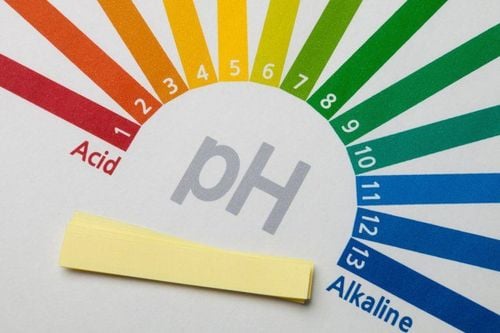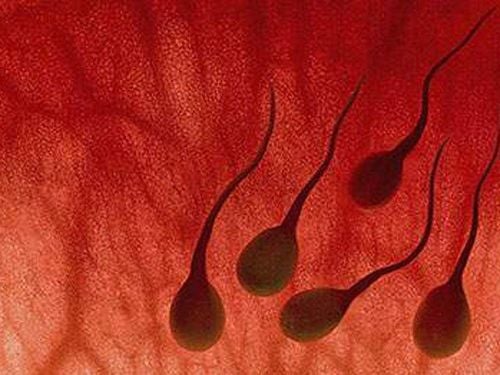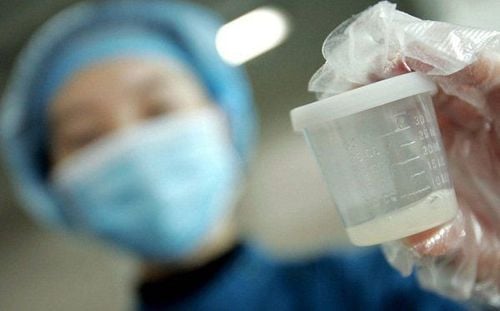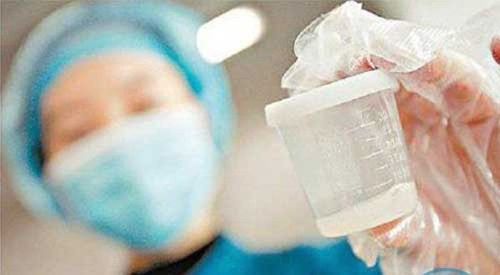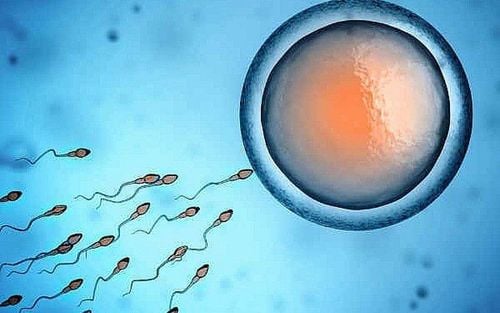When semen samples are kept at 37°C, sperm lose their mobility and viability. If kept at 4°C, they remain viable but lose their mobility due to thermal shock. The best temperature for storing semen to preserve sperm motility is 20°C.
1. Experimental data
The experiment was conducted on 42 fertile men who voluntarily requested a vasectomy. Semen samples were collected and stored at 4, 20, and 37°C. Motility and viability were analyzed after oil immersion and pH for 3, 6, 12, and 18 hours. Specifically:
- When semen was kept at 20°C, there was no significant decrease in motility after 12 hours.
- However, sperm motility decreased significantly when kept at 4 or 37°C, with the worst decrease occurring at 4°C.
Thus, motility decreased over time at 20 and 37°C, but at a significantly higher rate at 37°C (where motility was halved after 12 hours).
In these experiments, the survival rate was assessed using eosin-nigrosin staining and could not be restored by reheating the semen. The results are as follows:
- Sperm survival decreased similarly to motility at both 20°C and 37°C.
- Survival was best preserved at 4°C, although motility was lost. Specifically, at 4°C, motility was nearly absent after 6 hours, but sperm still survived for up to 18 hours.
At temperatures higher than 4°C, immotile sperm died due to the growth of many bacteria, mainly Gram-negative bacteria such as E. coli and Proteus. Occasionally, Gram-positive Enterococci were also identified. At 37 °C, the semen became significantly acidic. The bacterial count increased markedly, and the pH decreased at 37°C, which explains the loss of motility and viability.
To determine the effect of bacterial growth on sperm motility, the experiment was repeated with the addition of antibiotics. Results:
- No organisms grew and there was no decrease in pH, even at 37°C.
- Sperm in the presence of antibiotics retained better motility at 20 and 37°C.
- There was still a significant decrease in motility in samples kept at 37°C (body temperature), even when bacterial growth was prevented.
So what temperature do sperm live at? These studies show that keeping semen samples at room temperature (20°C) from ejaculation to analysis is best. Samples kept at 37°C lose both motility and viability. Samples kept at 4°C lose motility due to thermal shock but retain viability.
2. Sperm viability in other environments
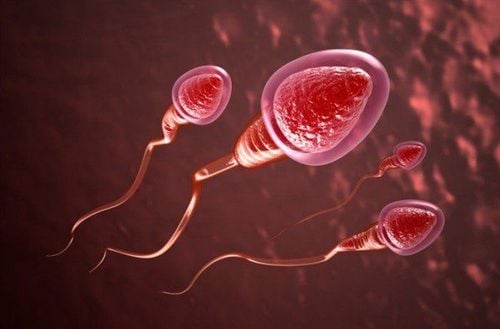
After ejaculation, if sperm does not enter the woman's body but goes out into the environment, it can still survive, but for a very short time. Specifically as follows:
In the air
When ejaculated into the air, sticking to surfaces such as bed sheets, tissues, floors, etc., the sperm's lifespan is only a few minutes, provided that the semen is still wet and the surface is free of chemicals. When the semen dries, the sperm can no longer survive.
Note that if sperm sticks near the vagina with enough moisture and warmth, it can survive for about 20 minutes. Therefore, if there are impacts that cause sperm (that has been released into the environment) to move to the vagina, there is still a chance of conception.
Inside a condom
The lifespan of sperm inside a condom can last up to 24 hours, depending on the material and storage temperature of the condom. Specifically, if the condom contains spermicide, the sperm will die within a few minutes. If not, sperm can survive for 15 to 20 minutes until the semen no longer maintains the appropriate temperature and conditions.
In cases where the environmental temperature is suitable and the condom is tightly sealed to prevent the semen from drying out, sperm can survive for several hours. However, in general, most condoms contain lubricants and preservatives, so the sperm's lifespan is not very long.
In hot water
What temperature do sperm live at? The temperature of a man's scrotum usually fluctuates around 43°C, which is the ideal temperature for sperm to live and develop. If ejaculated into warm water at the same temperature, sperm can live for a few minutes. In the case of ejaculating into hot water, sperm will die immediately.
Frozen Sperm
Men can choose to freeze sperm to preserve their reproductive ability for many years. When frozen at -196°C, all biological activity of sperm effectively stops. Studies have shown that frozen sperm can survive forever. Babies born from frozen sperm can still develop normally, both physically and mentally.
On the hand
Sperm cannot travel on the skin. They must come into direct contact with the vagina to travel to the uterus and fallopian tubes. But sperm can live for several minutes on the hand if not wiped away. So if enough sperm is on the fingers and inserted into the vagina, pregnancy can still occur.
In the pool
Sperm can live in the pool for only a few seconds because the pH of the water in the pool is different from the pH inside the vagina.
3. Other factors that affect sperm viability
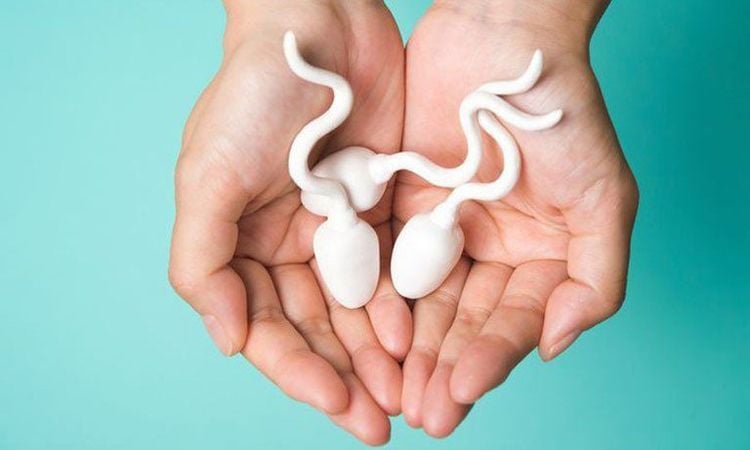
In addition to laboratory temperature, sperm viability depends mainly on the following natural factors:
Age
The sperm of men aged 20 - 40 years old has the most vitality. After the age of 40, sperm vitality decreases and many deformed sperm appear. After the age of 60, about 80% of sperm can be deformed. Therefore, men should give birth during the period of highest sperm vitality to ensure the ability to conceive.
Drinking alcohol, smoking
People who smoke regularly will have a significant decrease in sperm quality, and the rate of deformed sperm increases. In addition, long-term drinking also affects and causes testicular atrophy, as well as reduces sperm quality. Therefore, men should limit the use of stimulants to avoid affecting sperm quality.
External temperature
Frequent habits such as wearing tight clothing, using saunas, soaking in hot water, or placing a laptop on your lap can raise testicular temperature, reducing sperm growth and vitality.
Exercise
Obese men have elevated temperatures in the groin area, which affects sperm development. Moderate exercise, which balances hormone levels in the body, especially male sex hormones, can help improve sperm vitality.
If you and your partner are planning to conceive, it’s important to learn about sperm health, temperature, and viability. This knowledge will help men eliminate factors that negatively affect sperm quality and understand how to produce strong, healthy sperm.
To arrange an appointment, please call HOTLINE or make your reservation directly HERE. You may also download the MyVinmec app to schedule appointments faster and manage your reservations more conveniently.
References: pubmed.ncbi.nlm.nih.gov, sciencedirect.com




